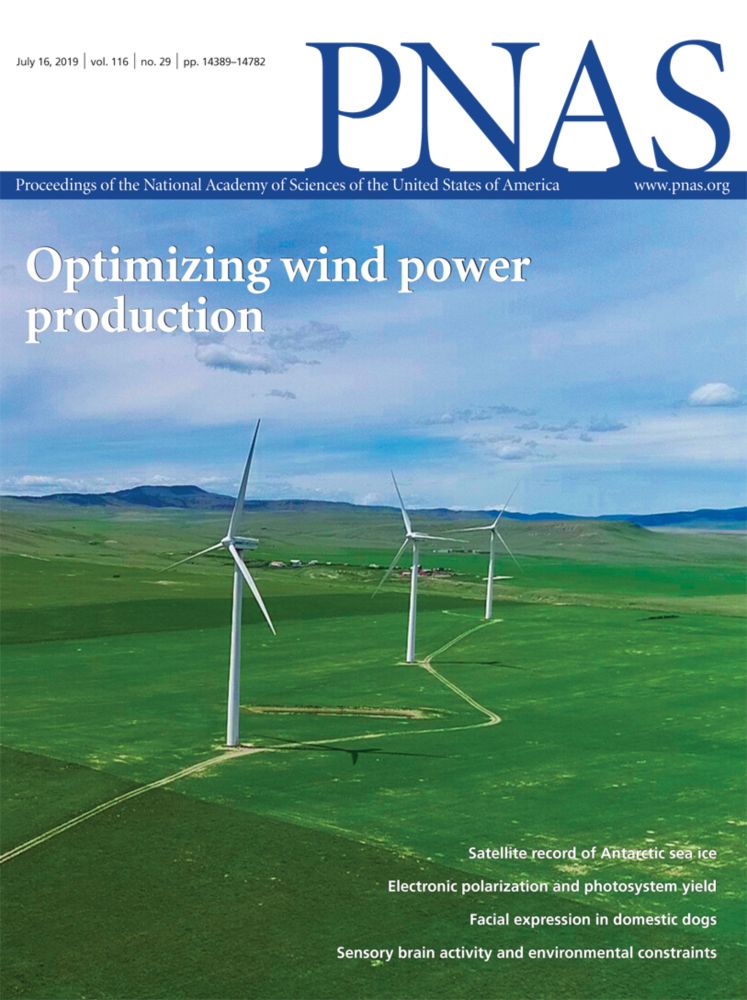
Nick Camp
@ncamp.bsky.social
Social psychologist in org studies, @UMich. I study racial inequality where institutions and individuals meet. Dad to Julian (2 legs) and Eddie (4 legs).
Also, interesting comments on sifting through footage with the aim of finding positive interactions to share with the public, an issue @robvoigt.bsky.social and I observed in other vendors' pitches to PDs: journals.sagepub.com/doi/pdf/10.1...
journals.sagepub.com
November 6, 2025 at 4:41 PM
Also, interesting comments on sifting through footage with the aim of finding positive interactions to share with the public, an issue @robvoigt.bsky.social and I observed in other vendors' pitches to PDs: journals.sagepub.com/doi/pdf/10.1...
and replacing it with this:

November 5, 2025 at 2:36 PM
and replacing it with this:
Two people thought that! I think I have next year's costume ready...
October 31, 2025 at 5:29 PM
Two people thought that! I think I have next year's costume ready...
Me shaking my head in Orioles

September 27, 2025 at 12:03 PM
Me shaking my head in Orioles
Not as fun as either, but Mapillary has free API calls
September 17, 2025 at 11:35 PM
Not as fun as either, but Mapillary has free API calls
We should make police interactions more respectful. However, enforcement is an investigatory tool, it undermines these goals. Interactions can’t build trust if they start with a lie. As traffic stops become the vehicle for investigation and immigration enforcement, the costs will be severe. (7/7)

September 15, 2025 at 5:46 PM
We should make police interactions more respectful. However, enforcement is an investigatory tool, it undermines these goals. Interactions can’t build trust if they start with a lie. As traffic stops become the vehicle for investigation and immigration enforcement, the costs will be severe. (7/7)
Because they entail so much choice, however, police departments can rein in discretionary stops. We found one directive in which merely advised officers to curtail equipment stops reduced racial gaps in stop rates, by bringing down the high number of equipment stops of Black drivers (6/7)

September 15, 2025 at 5:46 PM
Because they entail so much choice, however, police departments can rein in discretionary stops. We found one directive in which merely advised officers to curtail equipment stops reduced racial gaps in stop rates, by bringing down the high number of equipment stops of Black drivers (6/7)
This context means different things to Black and White drivers. We asked DMV customers to listen to recordings of equipment + moving stops and report their trust in the officer. White participants were generally trusting, but Black customers were skeptical of officers in high-discretion stops. (5/7)

September 15, 2025 at 5:46 PM
This context means different things to Black and White drivers. We asked DMV customers to listen to recordings of equipment + moving stops and report their trust in the officer. White participants were generally trusting, but Black customers were skeptical of officers in high-discretion stops. (5/7)
Looking across a range of agencies, we find that stops of Black drivers are much more likely to be for minor offenses relative to Whites, particularly in urban police departments. Statewide agencies, focus on enforcement rather than investigation, show no disparities in discretionary context (4/7)

September 15, 2025 at 5:46 PM
Looking across a range of agencies, we find that stops of Black drivers are much more likely to be for minor offenses relative to Whites, particularly in urban police departments. Statewide agencies, focus on enforcement rather than investigation, show no disparities in discretionary context (4/7)
Every driver is breaking some traffic law at some time. However, officers have more choice in enforcing some offenses (broken taillight) than others (drunk driving). Minor stops are ambiguous: all the more so since police are permitted and encouraged to use them as a pretext for investigation. (3/7)
September 15, 2025 at 5:46 PM
Every driver is breaking some traffic law at some time. However, officers have more choice in enforcing some offenses (broken taillight) than others (drunk driving). Minor stops are ambiguous: all the more so since police are permitted and encouraged to use them as a pretext for investigation. (3/7)
Psychologists (including me) have thought about how officers talk with citizens, and the benefits of making stop interactions more respectful. But, a narrow focus on what goes on during stops overlooks the decision that leads to those stops in the first place (2/7). academic.oup.com/pnasnexus/ar...

Leveraging body-worn camera footage to assess the effects of training on officer communication during traffic stops
Abstract. Can training police officers on how to best interact with the public actually improve their interactions with community members? This has been a
academic.oup.com
September 15, 2025 at 5:46 PM
Psychologists (including me) have thought about how officers talk with citizens, and the benefits of making stop interactions more respectful. But, a narrow focus on what goes on during stops overlooks the decision that leads to those stops in the first place (2/7). academic.oup.com/pnasnexus/ar...
Interesting, I recall postings being free, and you could pay to make it a featured listing. I guess they changed the policy 😔 Have you posted to the jobs wiki? sites.google.com/view/psychjo...

New Psych Job Wiki - Research Assist. & Lab Manager
Psych Jobs 2025-2026
Welcome to the Predoc Positions page. All jobs listed below are predoc and lab manager positions. If the start dates are not Spring 2026 or Fall 2026, you will see an asterisk nex...
sites.google.com
September 10, 2025 at 12:13 PM
Interesting, I recall postings being free, and you could pay to make it a featured listing. I guess they changed the policy 😔 Have you posted to the jobs wiki? sites.google.com/view/psychjo...
Is there a second page to generate the readings, slides, assignments, lecture recordings, and Simpsons references?
August 15, 2025 at 1:38 PM
Is there a second page to generate the readings, slides, assignments, lecture recordings, and Simpsons references?
Whether interdependent cultures promote harmony or have different forms of conflict relative to independent cultures www.pnas.org/doi/abs/10.1...

Ingroup vigilance in collectivistic cultures | PNAS
Collectivistic cultures have been characterized as having harmonious, cooperative
ingroup relationships. However, we find evidence that people in c...
www.pnas.org
August 7, 2025 at 11:07 PM
Whether interdependent cultures promote harmony or have different forms of conflict relative to independent cultures www.pnas.org/doi/abs/10.1...
And you can find the accompanying (short! assignable!) theory paper here:
compass.onlinelibrary.wiley.com
August 1, 2025 at 1:44 PM
And you can find the accompanying (short! assignable!) theory paper here:




